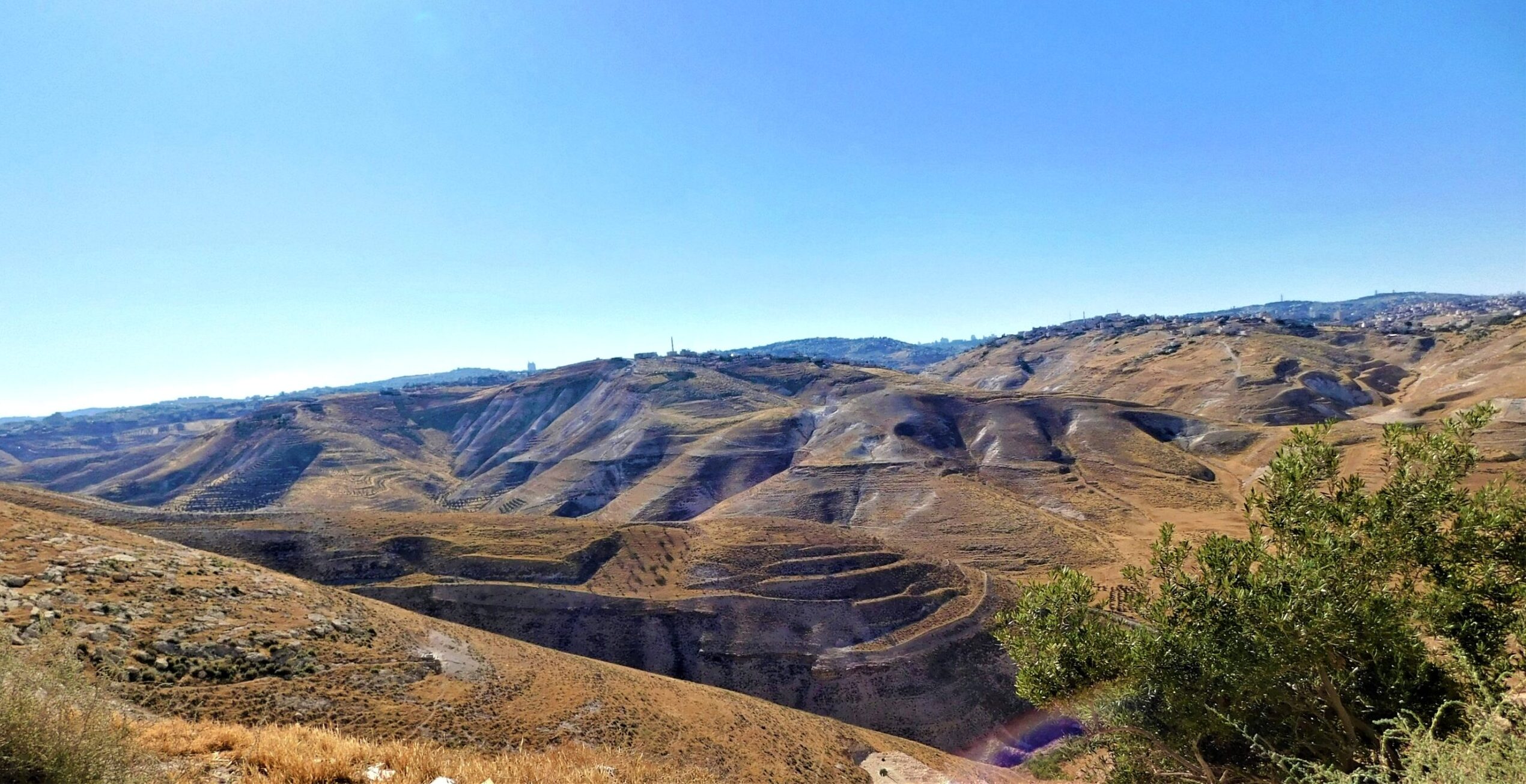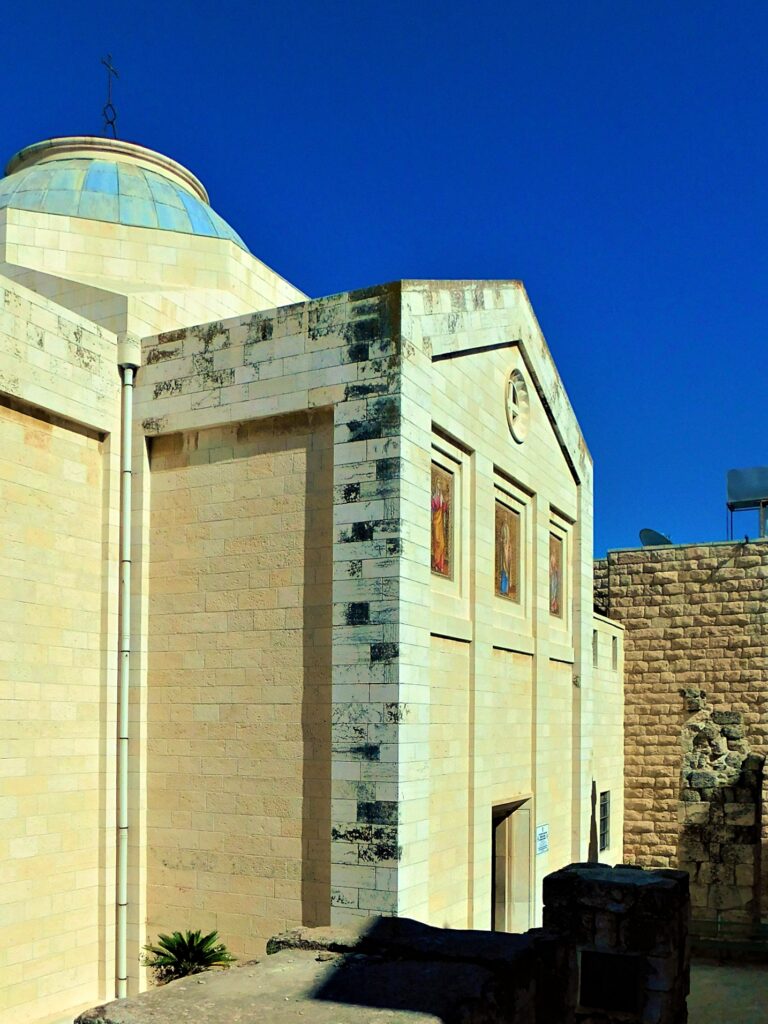#TomorrowIsSunday (EN+ES) | What do we learn from the example of Martha and Mary during our vacation time?


Bethany - surrounnding area, PhotoCredit Sr Amata CSFN
16th Sunday of Ordinary Time, Year C
Sunday, July 17, 2022
Gospel of Luke 10:38-42
EN: https://bible.usccb.org/bible/readings/071722.cfm
You can download the commentary on the Gospel and beautiful photos:
*
XVI Domingo del Tiempo Ordinario, Año C
Domingo, 17 de julio de 2022
Evangelio de San Lucas 10,38-42
ES: https://bible.usccb.org/es/bible/lecturas/071722.cfm
1. Profound meaning of the visit to Bethany
The Gospel of Martha and Mary is often interpreted very superficially, whereas in reality its meaning is very profound and timely, especially during the holiday season.
2. Key words
Jesus entered a village where a woman whose name was Martha welcomed him. She had a sister named Mary who sat beside the Lord at his feet listening to him speak. Martha, burdened with much serving, came to him and said, “Lord, do you not care that my sister has left me by myself to do the serving? Tell her to help me.”
The name Martha literally means the “lady of the house.” She invited Jesus into her home in Bethany and wanted to receive him as best she could. She had a sister Mary and a brother Lazarus. They were friends of Jesus, who frequently stayed in their home.
The Greek term perispao, used here to denote being burdened, or exerting oneself, literally means being detached, too distracted from what matters most. Unfortunately, we know that we are often too busy and even if our intentions are good, we lose sight of the One for whom we exert ourselves: God and our neighbor.
The Lord said to her in reply, “Martha, Martha, you are anxious and worried about many things. There is need of only one thing. Mary has chosen the better part and it will not be taken from her.”
In the language of Scripture, “the better part,” in Greek agathen merida, is part of the legacy of the Promised Land. It is symbolic of goodness, beauty, and something that gives joy and is good in the eyes of God and other people. Mary’s attitude does not indicate a lack of commitment to domestic duties, but an appropriate hierarchy of values: God and neighbor come first, and it is for them that one works.
When commenting on this gospel, St. John Paul II observed that these words of Jesus are especially relevant during the holiday season. This is the time which can help us strike the right balance between activism and contemplation, haste and a more natural rhythm, as well as noise and peaceful silence.
3. Today
“If God comes first, all is in the right place;” the words of St. Augustine are one of the most fitting comments on today’s Gospel.

Bethany, Photo Credit Sr Amata CSFN
*
1. El profundo significado de la visita a Betania
A menudo se hace una interpretación muy superficial del fragmento de Evangelio sobre Marta y María. Su significado, en cambio, es muy profundo y actual, especialmente durante las vacaciones de verano.
2. Palabras clave
Jesús llegó a una aldea. Allí una mujer, llamada Marta, Lo recibió en su casa. Tenía una hermana llamada María, que se sentaba a los pies del Señor y escuchaba su palabra. Marta, en cambio, estaba ocupada con varias tareas. Y cuando estaba junto a Él, dijo: “Señor, ¿te importa que mi hermana me haya dejado solo para servir? Dile que me ayude.
El nombre de Marta significa literalmente “ama de casa”. Ella invitó a Jesús a su casa de Betania y quiere acogerlo lo mejor posible. Tenía una hermana María y un hermano Lázaro. Eran amigos de Jesús, que frecuentaba su casa.
“Estar ocupado” en griego, “perispao”, significa literalmente estar separado de la realidad, demasiado ocupado con las cosas y distraído de lo más importante. Lamentablemente, sabemos que a menudo nos preocupamos por muchas cosas con buenas intenciones, pero perdemos de vista a Aquel por quien lo hacemos: a Dios y al prójimo.
Y el Señor le respondió: “Marta, Marta, muchas cosas te preocupan y te inquietan, siendo así que una sola es necesaria. María escogió la mejor parte y nadie se la quitará”.
“La mejor parte” en griego “agathen merida” significa en lenguaje bíblico parte de la herencia de la Tierra Prometida. Es un símbolo de bondad, de belleza, algo que da alegría y es bueno a los ojos de Dios y de la gente. La actitud de María no implica una falta de compromiso con los deberes domésticos, sino la correspondiente jerarquía de valores: Dios y el prójimo en primer lugar, y es por ellos que se trabaja.
San Juan Pablo II, comentando este Evangelio, dijo que estas palabras de Jesús son particularmente relevantes durante el tiempo de vacaciones. Las vacaciones pueden ayudar a equilibrar el activismo con la contemplación, las prisas con un ritmo más natural y el ruido con el silencio que induce a la paz.
3. Hoy
“Si Dios es lo primero en la vida, todo estará en su sitio”. Estas palabras de San Agustín son uno de los comentarios más acertados del Evangelio de hoy.
You can read also:
#TomorrowIsSunday (EN+ES) | Our neighbour – a stranger, someone we do not know? >>>
#TomorrowIsSunday (EN+ES) | Jesus’ manual for preachers of the Gospel >>>
#TomorrowIsSunday (EN+ES) | Why did Jesus live as if he were homeless? >>>
TomorrowIsSunday (EN+ES) | Corpus Christi. What is the miracle? >>>
#TomorrowIsSunday (EN+ES) | What does the Trinity teach us? >>>
#TomorrowIsSunday (EN+ES) | What does Jesus call the Holy Spirit? >>>
#TomorrowIsSunday (EN+ES) | How does Jesus continue to help us after the Ascension? >>>
#TomorrowIsSunday (EN+ES) | How can God dwell in us? >>>
#TomorrowIsSunday (EN+ES) | What kind of love is best? >>>
#TomorrowIsSunday (EN + ES) | How to hear Jesus? >>>
#TomorrowIsSunday (EN+ES) | What rebuilds a relationship with Jesus? >>>
#TomorrowIsSunday (EN+ES) | Why is this Sunday Compared to a “Second Baptism”? >>>
#TomorrowIsSunday (EN+ES) | Jesus’ greatest miracle >>>
#TomorrowIsSunday | What does Jesus write in the sand? >>>
#TomorrowIsSunday (EN+ES) | What is the scandal of mercy? >>>
#TomorrowIsSunday (EN+ES) | Why Does Jesus Pray? >>>
#TomorrowIsSunday (EN+ES) | What Should One Do when Tempted? >>>
#TomorrowIsSunday (EN+ES) | What Do a Hypocrite and a Mask Have in Common? >>>
#TomorrowIsSunday (EN+ES) | Why should we love our enemies? >>>
#TomorrowIsSunday (EN+ES) | Jesus’ Counsel Regarding Hatred Prompted by Faith >>>
#TomorrowIsSunday (En+ES) | In the Bible, what does it mean to be “fisher of men”? >>>
#TomorrowIsSunday (EN+ES) | Why is Nazareth a Tragic City? >>>
#TomorrowIsSunday (EN+ES) | Who is Theophilus for whom Luke wrote the Gospel? >>>




Dodaj komentarz